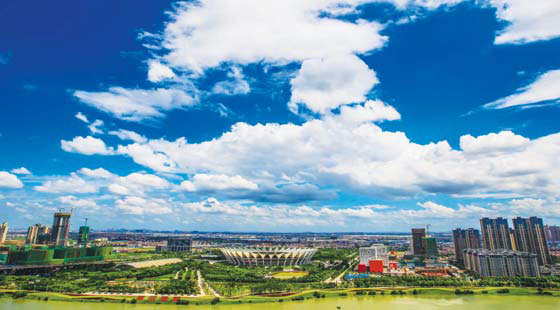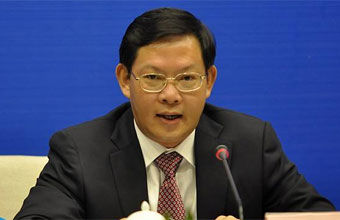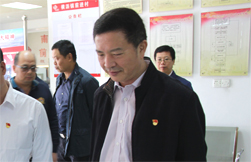Home> Biz Updates
German industrial know-how on show
|
Sino-German Industrial Services Zone, also known as Foshan New City, was set up in 2012. It will bring industrial service projects from Europe. Provided to China Daily |
Guangdong draws on foreign capital and expertise as investment parks take root
Germany's industrial prowess is being felt strongly in Guangdong province with the construction of two joint investment parks.
The two projects are Sino-German Metal Ecological City in Jieyang and Sino-German Industrial Services Zone in Foshan.
At the same time, the Guangdong port city of Zhanjiang is looking to strengthen its collaboration with Germany, in particular with a steel and petrochemical industrial park that is being built there.
Construction of Sino-German Metal Ecological City, which will cover 25 square kilometers and cost more than 150 billion yuan ($24 billion, 17 billion euros), began in late 2012.
The provincial government has described the city as a cluster of industries that will explore the "innovative transformation of traditional industries".
A plant that produces energy from urban solid waste in an environmentally friendly way, the first of its kind in China, will be located there. When President Xi Jinping visited Germany in March, the German company Alba Group signed an agreement with Zhongde Metal Group Co and Guangdong Rising Assets Management Co to build the plant.
"Germany is a global leader in the field of environmental technology," says Axel Schweitzer, Alba's CEO. "Alba is a global leader in recycling.
"We are pleased to contribute our expertise to the development of the new urban mining base in China's first ecological city in this combined state-private-international line-up."
Construction of three German-invested projects in the ecological city began in January, the city administration says.
Sino-German Industrial Services Zone, also known as Foshan New City, will be an ecologically smart city with well-developed transport, communication, business services, commerce and financial service facilities, says Zhao Hai, director of the development and management committee of the zone.
The zone, founded in 2012, will bring together high-end industrial services including research and development and design, testing and certification, new IT, clean energy, conventions and exhibitions and vocational training.
It meets the need of industrial transformation in Foshan and in the Pearl River Delta area, Zhao says.
The zone will eventually cover 88 sq km and bring industrial service projects from Europe, particularly Germany, highly skilled personnel and international rules and practices, Zhao says.
Several German and Chinese companies have indicated that they plan to invest in the zone, Zhao says.
With the Jieyang and Foshan projects, German companies are keen to step up their economic collaboration with China, allowing them to access its growing market, says Stefan Gallon, consul-general of Germany in Guangzhou.
"The projects in Jieyang and Foshan differ from normal economic cooperation. The aim is to establish a trusting, sustainable and profitable relationship that profits both sides. When we do business we look at the long term.
"Apart from investment, German enterprises are contributing experience, knowledge and vocational training to the projects. Training local staff will be one of the big challenges in the years to come. But we believe that only with well trained people can China attain the highest levels in production industries."
The Zhanjiang city government plans to set up a trade office in Germany this year, Wang Zhongbing, the city's mayor, said in a meeting with Stefan Gallon, Germany's consul-general in Guangzhou, and Oliver Regner, a delegate of the German Industry and Commerce in Guangzhou, in February.
Guangdong plays a leading role in China's economic development and is an attractive region for German companies to invest in, Gallon says.
"German investments increasingly focus on innovative technologies and the service industry, and no longer manufacturing. That coincides with the policy of industrial upgrading being promoted by Guangdong, which in our eyes is the natural course of development of the economy."
German colors are also being nailed to the mast in Qingdao, Shandong province, where a Sino-German Ecopark is being built.

 Print
Print Mail
Mail
 5G construction supports Zhanjiang's high-quality development
5G construction supports Zhanjiang's high-quality development
 Acting mayor inspects project construction in Xuwen, Leizhou
Acting mayor inspects project construction in Xuwen, Leizhou Zhanjiang island an "egret paradise"
Zhanjiang island an "egret paradise"  Dancing egrets add vitality to Xiashan
Dancing egrets add vitality to Xiashan